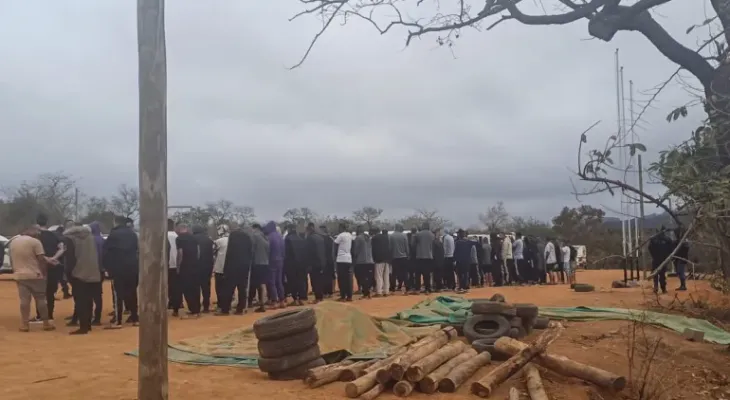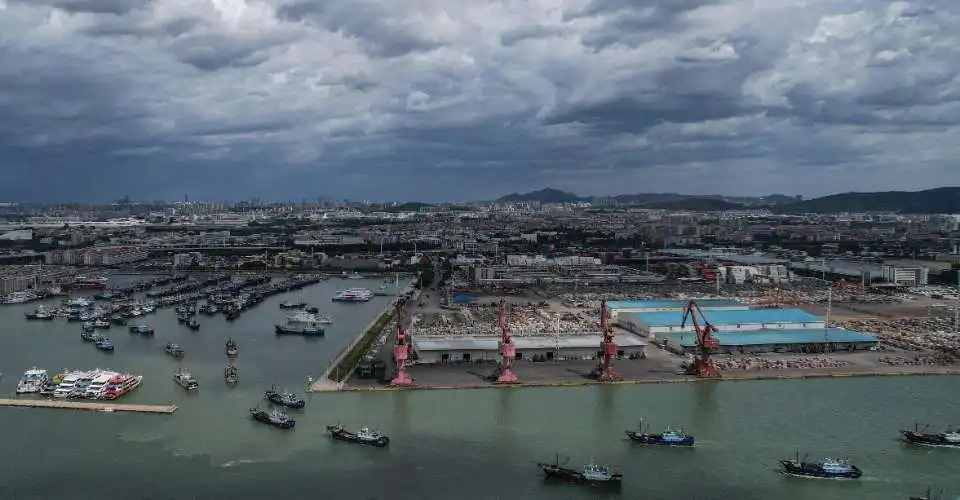
Victory in Monday’s election would cap a decades-long effort to rehabilitate the Marcos legacy after the patriarch was deposed and the disgraced clan chased into US exile.
But the prospect of Ferdinand Marcos Jr moving back into the presidential palace has alarmed rights activists, church leaders and political analysts who fear he could rule “without constraint”.
The Marcoses’ remarkable return from pariahs to the peak of political power has been fuelled by public anger over corruption and poverty that persisted under governments that followed the dictatorship.
Thousands of red-clad Marcos supporters braved the ferocious sun and high winds on Saturday to amass on a dusty wasteland overlooked by a gleaming luxury casino resort — a stark reminder of the country’s vast income gap.
Wielding national flags or umbrellas for shade, they gathered before a stage featuring an enormous screen of the smiling candidate as Filipino reggae, hip hop and pop played at deafening levels.
Mary Ann Oladive, a 37-year-old call centre worker, said she hoped Marcos Jr would bring unity to the country. “We hope for greater opportunity and jobs. We trust him, we hope that after the election they will give us a better future in the Philippines,” she said.
‘Without constraint’
Ten candidates are vying to succeed President Rodrigo Duterte in the landmark elections seen by many as a make-or-break moment for Philippine democracy.
Polls indicate Marcos Jr will win more than half the votes, which would make him the first presidential candidate to secure an absolute majority since his father was ousted in 1986.
Analysts warn such an outcome would lead to weaker democratic checks and balances, more corruption and a fresh attempt to overhaul the 1987 constitution — which could include scrapping the one-term limit for presidents.
Previous administrations, including Duterte’s, have tried to amend the constitution but they lacked sufficient support in Congress to push through changes.
The latest poll by Pulse Asia Research showed Marcos Jr on 56 percent — 33 percentage points ahead of his nearest rival Leni Robredo, who narrowly beat him in the 2016 vice-presidential race.
Such a winning margin would give Marcos Jr the power to “govern the way Duterte wanted to”, one long-time observer of Philippine politics told AFP. “That is without constraint,” he said.
Robredo’s recent poll bump has raised hopes among progressive supporters that their volunteer-driven campaign could yet deliver an upset.
There was a carnival atmosphere in the capital’s financial district on Saturday as thousands of Robredo fans wearing her pink campaign colour and waving flags and balloons packed out avenues, dancing to pop music blaring over loudspeakers.
“I think this election is very important… our next six years of life will depend on it,” first-time voter Charmaigne Ang, 18, told AFP.
“Surveys are not a basis of who will win.” But pollster Ana Maria Tabunda of Pulse Asia Research gave Robredo little hope.
“Our error margin is only plus or minus two percentage points — given the large gap, it’s not going to be affecting the results,” Tabunda told AFP.
Allegations of dirty tricks marred the last week of a bitter presidential campaign, as Marcos Jr warned of vote-rigging while Robredo accused him of being a “liar”.






